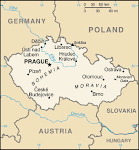
The head of the Russian Space Agency, or Roskosmos (RKA), plans to set a world record by launching 39 space launches in 2009. Anatoly Perminov said Monday that the schedule will include the transportation of commercial and civilian satellite launches and six Progress cargo vehicles, four manned space missions, and a host of other aeronautical missions. The Russian Duma has already approved overall space expenditures in Russia totaling about 425 billion rubles ($14.5 billion) for the 2006-2015 period. It would seem that Russia is becoming the world leader of space travel, as RIA Novosti states.
What is evident, however, is that the press agency failed to account for American space endeavors. The US has already allocated a proposed budget for NASA of $20.21 billion (up $2.89 billion from 2008) for 2009 alone. While Russia has been busy with its space tourism industry, collecting millions of dollars from persistent civilians, the US has been focusing outside Earth’s orbit. Under current NASA Administrator, Michael D. Griffin, the US is already watching over the New Horizons mission to Pluto (launched 2006/ETA 2015) and supporting President Bush’s 2004 Vision for Space Exploration, which aims to:
- Complete the International Space Station by 2010;
- Retire the Space Shuttle by 2010 and develop and conduct Orion’s (its future descendent) first human spaceflight mission by 2014;
- Develop Shuttle-Derived Launch Vehicles;
- Explore the Moon with crewed missions by 2020; and
- Explore Mars and other destinations with robotic crewed missions
Russia’s projected military expenditures for 2009 are $50 billion, several hundred billion shy of the US budget of $515.4 billion. In recognition of the dearth of Russian military spending in the post-Cold War, Russia is desperately trying to maintain its image of a superpower. Such obvious signs like the continuation of the Soviet tradition of arms parades in 2008 point to an acerbic and resentful country that relies of compensation to mitigate its citizens’ fears.
Cold War-like information warfare campaigns are becoming ubiquitous since Putin’s ascension to the presidency in late 1999. In the wake of the Columbia disaster, RKA has been reaping in the spoils of space devoid of a major US presence. Propaganda like that of RIA Novosti is commonplace and will only continue even after the US launching of the Orion program.























No comments:
Post a Comment